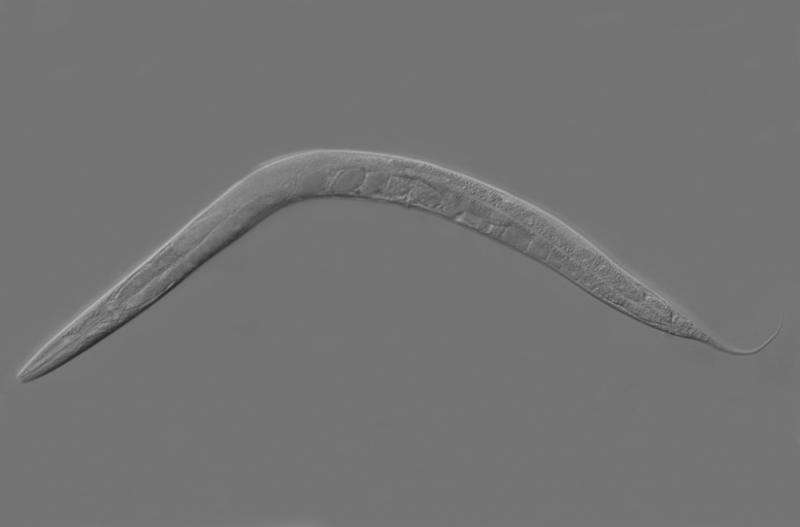Scientists uncover new path toward treating a rare but deadly neurologic condition

Studies with a popular laboratory model, the nematode Caenorhabditis elegans, have revealed a possible therapeutic avenue for a rare but deadly condition in which children are born without the ability to make molybdenum cofactor (Moco) on their own.
Though little known, Moco is essential for life and so far it has proven extremely difficult to stably isolate this compound in the laboratory, preventing its use as a therapeutic supplement. This new work, which appears in Genes & Development, reveals that nematodes genetically engineered to be Moco-deficient can take up Moco that is attached to several types of proteins. This suggests that such protein-Moco complexes could be used as a treatment for Moco deficiency in people.
Children born with mutations that make them unable to synthesize Moco suffer lethal neurological and developmental defects. Providing them supplemental Moco might reverse these devastating symptoms. This work suggests a potential new route for delivering this essential cofactor.
The researchers carried out studies in C. elegans that were engineered to be deficient in their ability to make Moco. Like humans, C. elegans deficient in Moco die very early in development. Nematodes, however, can also ingest Moco from their diet—a process that is similar to supplementation, as with vitamins. The researchers found that the worms could take in Moco as a range of purified Moco-protein complexes. These included complexes with proteins from bacteria, bread mold, green algae and cow's milk. Ingesting these complexes saved the Moco-deficient worms.
Further, they demonstrated that the Moco-protein complexes were very stable, suggesting it is possible to produce them as a supplement for children born with Moco deficiency.
"We tested four proteins and all four were restorative in our nematode model. That's very encouraging," says Kurt Warnhoff, Ph.D., an investigator in the Department of Molecular Biology at Massachusetts General Hospital (MGH) and the paper's co-lead author. "We do not want to overstate our findings, especially as they relate to patients, but we are extremely excited about the therapeutic and fundamental implications of this work."
More information: Kurt Warnhoff et al, Protein-bound molybdenum cofactor is bioavailable and rescues molybdenum cofactor-deficient C. elegans, Genes & Development (2021). DOI: 10.1101/gad.345579.120




















